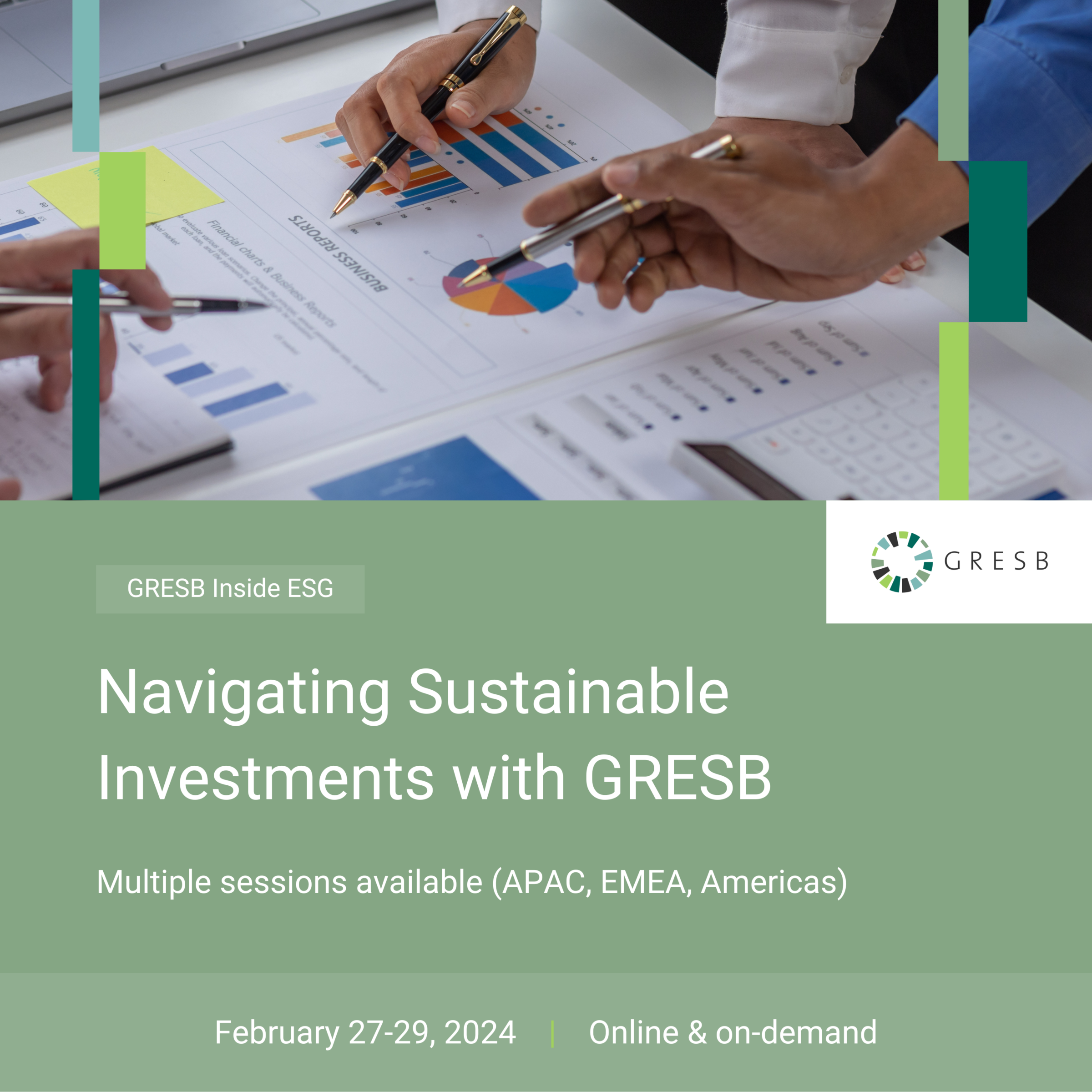This is a time of change for real assets and sustainability, presenting both opportunities and tensions across the industry – a push to move faster, a pull to navigate political differences, and friction from economic conditions. GRESB lives at the center of these tidal forces. As we navigate these shifts, I want to take a minute to highlight some guiding principles and important accomplishments along the way.
1. Energy and climate are job one
The GRESB Foundation has said in no uncertain terms that we must raise the bar on real-world performance. This is reflected in the ranking of issues in the 2024 GRESB Foundation Roadmap and the results of an expert technical review conducted by the Net Zero Working Group.
2. Energy and climate priorities are reflected in new requirements and tools
The GRESB team is doing much more than prioritizing and studying these issues. We are acting. Three of the most tangible manifestations of these priorities include new energy performance scoring for the 2024 Assessment, new requirements for green building certifications, and new investor tools for carbon footprint reporting.
3. Asset performance matters
We know investors and managers want to go beyond aggregated entity-level performance. They want to understand individual asset performance, including short-term, medium-term, and long-term risks. Our commitment to this priority is evident through recent team additions and improved tools. Dr. Parag Rastogi joined GRESB in January as our Director for Real Asset Analytics. His focus is to create better, more relevant, and more actionable insights about asset performance. These priorities can also be seen in the 2024 updates to the Transition Risk Reports, comparing asset performance to CRREM pathways.
4. Performance can streamline reporting
We believe that a holistic assessment of sustainability includes both management and performance. We also recognize that some investors and managers want a more streamlined approach to assessment. One option is to participate in GRESB using only the Performance Component. This provides a more limited benchmark with a narrow focus on energy, emissions, water, waste, energy ratings, and certifications, enabling GRESB’s long-standing framework to address issues like operational control and tenant/landlord splits, among other factors. It eliminates qualitative information, drastically reduces the effort required for submission, and provides options for direct connections to enterprise data systems.
5. Data quality is fundamental
We know that any data can have flaws. We recognize that data collection and management are a challenge for everyone involved. We are taking action through our multi-strategy Quality Control Program (QCP). This ongoing, iterative effort is designed to enforce compliance with the GRESB reporting requirements and to ensure data are reported in line with official guidance.
Highlights from the QCP include:
- Consistency checks in the GRESB Portal to prevent errors from entering the system, to ensure consistent methodology, and to provide comparable output
- Internal quality checks to identify performance outliers
- Increased use of automated data connections, such as the GRESB API
Together, these measures are making a big difference in improving year-over-year data quality.
These five items are just a piece of our 2024 priority list. We are moving quickly to understand and adapt to a dynamic market. We remain focused on our mission — supporting constructive engagement between investors and managers. We believe this is a powerful source of positive change for people and the environment.
Onward!

Navigating sustainable investments with GRESB
Join us online on February 27, 28, or 29 to gain a deeper understanding of how investor members benefit from GRESB and explore the latest advancements in sustainable investing, including the newly launched GRESB Carbon Footprint Dashboard.
Today, the portfolios of more than 2,000 real estate companies, REITs, funds, and developers – and more than 800 infrastructure funds and asset operators – participate in the GRESB Assessments. This broad market coverage provides investors with ESG data and benchmarks for more than USD 8.8 trillion worth of AuM.
Sign up for the webinar to find out how investors are making the most of this data.
